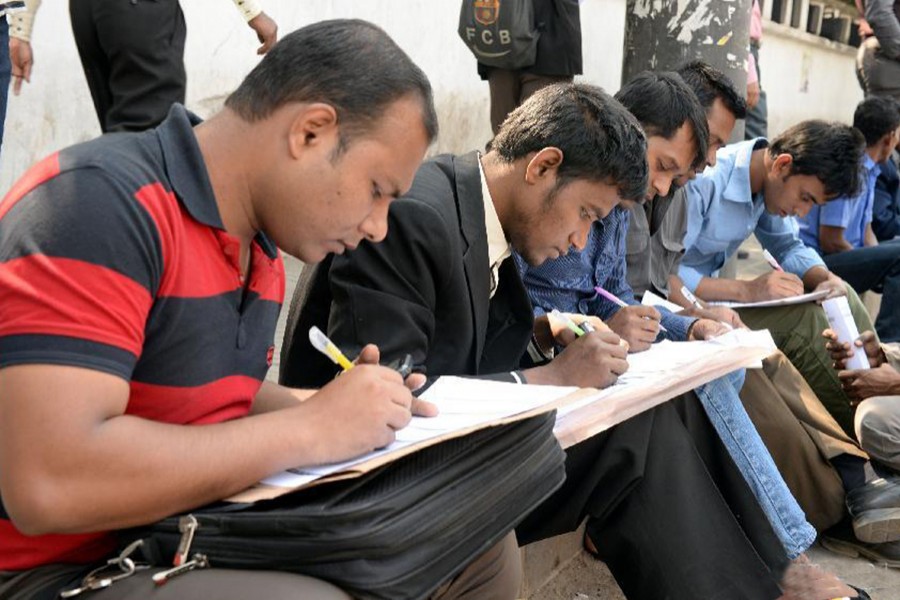The central bank is set to unveil its second half-yearly (H2) monetary policy on Wednesday at 11:30 am, giving top priority to job creation through boosting credit flow to the productive sectors.
Bangladesh Bank (BB) Governor Fazle Kabir will announce the monetary policy statement (MPS) for the January-June period of the current fiscal year (FY), 2018-19, with aims of achieving sustainable economic growth and curbing inflation.
It will be the first monetary policy declaration after the Bangladesh Awami League-led government assumed office for the third consecutive term.
A special meeting of the central bank's board of directors is scheduled to be held at its headquarters on Sunday with the BB governor in the chair to discuss about the proposed MPS, according to officials.
The BB Monetary Policy Committee (MPC) is expected to finalise the overall monetary programmes along with other core policies of the next MPS in line with the board meeting's discussion, they added.
"We're formulating the next MPS aiming to create employment opportunities through boosting investment in the real economic sectors," a BB senior official told the FE on Thursday.
As part of the strategies, the central bank may focus on boosting micro, small and medium enterprises (MSMEs) and agriculture loans along with micro-credit to help create employment opportunities across the country, they noted.
The officials also hinted that policy rates, including CRR (cash reserve requirement), Repo and Reverse Repo, may remain unchanged for H2 of FY 19.
The private sector credit growth target is likely to be re-fixed, considering the overall economic situation along with fund requirement of the government to finance budget deficit, they added.
The sector's credit growth came down to 13.20 per cent in December 2018 on a year-on-year basis from 14.01 per cent a month ago, the BB data showed.
This growth was 3.60 percentage points lower than the BB's target of 16.8 per cent for the first half (H1) of FY 19.
The central bank also projected that the private sector credit would grow at 16.80 per cent in June 2019, according to the MPS for July-December period of FY 19.
In the H2 MPS, BB is likely to maintain its cautious position on containing inflationary pressure on the economy, as the average core inflation has witnessed an upward trend in the recent months.
The core inflation rose to 4.65 per cent on annual average basis in December 2018 from 4.52 per cent a month ago. It was 3.94 per cent in July 2018.
Currently, the central bank is measuring the core inflation, excluding non-food and non-fuel components from consumer price index (CPI).
The prime objective of computing core inflation is to separate out the components of headline inflation, officially known as general inflation, which are caused by non-monetary events, as these price changes do not reflect the impact of underlying monetary policy decisions.
The latest situation of the capital market along with foreign exchange and money markets will be included in the next MPS, they added.
The MPS may also emphasise ensuring the quality of credit through strengthening the central bank's monitoring and supervision.
The next MPS is likely to focus on bringing down the volume of classified loans in the banking sector through ensuring credit discipline in the sector, they hinted.
The amount of non-performing loans (NPLs) rose by nearly 34 per cent to Tk 993.70 billion as on September 30, from Tk 743.03 billion as on December 31, 2017, according to the BB latest statistics.


